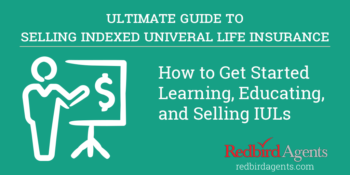All Categories
Featured
Table of Contents
Do they contrast the IUL to something like the Vanguard Overall Stock Market Fund Admiral Shares with no load, an expense ratio (ER) of 5 basis factors, a turn over ratio of 4.3%, and an exceptional tax-efficient record of circulations? No, they contrast it to some horrible actively managed fund with an 8% lots, a 2% ER, an 80% turnover proportion, and a horrible document of temporary capital gain circulations.
Shared funds frequently make yearly taxable distributions to fund proprietors, also when the value of their fund has actually dropped in worth. Shared funds not only call for revenue reporting (and the resulting yearly taxes) when the mutual fund is going up in worth, yet can also enforce earnings taxes in a year when the fund has decreased in value.
You can tax-manage the fund, gathering losses and gains in order to lessen taxed distributions to the financiers, yet that isn't in some way going to alter the reported return of the fund. The possession of mutual funds might call for the mutual fund proprietor to pay estimated taxes (principal group universal life).

IULs are very easy to place so that, at the proprietor's fatality, the beneficiary is exempt to either earnings or estate taxes. The exact same tax obligation reduction methods do not work almost also with shared funds. There are countless, commonly expensive, tax traps linked with the timed trading of common fund shares, traps that do not put on indexed life insurance policy.
Opportunities aren't extremely high that you're mosting likely to be subject to the AMT because of your shared fund circulations if you aren't without them. The remainder of this one is half-truths at finest. For circumstances, while it holds true that there is no income tax obligation because of your successors when they inherit the earnings of your IUL policy, it is also real that there is no revenue tax due to your beneficiaries when they acquire a mutual fund in a taxed account from you.
Iul Sales
The government inheritance tax exception limitation mores than $10 Million for a couple, and expanding each year with rising cost of living. It's a non-issue for the large bulk of medical professionals, a lot less the remainder of America. There are much better methods to prevent inheritance tax issues than buying financial investments with reduced returns. Common funds may trigger revenue tax of Social Protection advantages.

The growth within the IUL is tax-deferred and may be taken as free of tax income using finances. The policy owner (vs. the mutual fund manager) is in control of his/her reportable revenue, hence enabling them to reduce or perhaps get rid of the taxes of their Social Safety advantages. This one is great.
Below's an additional marginal issue. It holds true if you get a shared fund for claim $10 per share simply before the distribution date, and it distributes a $0.50 distribution, you are after that mosting likely to owe taxes (probably 7-10 cents per share) although that you haven't yet had any kind of gains.
In the end, it's truly concerning the after-tax return, not exactly how much you pay in taxes. You are mosting likely to pay more in tax obligations by using a taxed account than if you acquire life insurance policy. But you're also most likely mosting likely to have more money after paying those taxes. The record-keeping needs for possessing common funds are considerably a lot more complex.
With an IUL, one's documents are kept by the insurance provider, copies of yearly statements are mailed to the owner, and circulations (if any type of) are totaled and reported at year end. This one is also kind of silly. Certainly you should keep your tax records in situation of an audit.
Indexed Universal Life Insurance Calculator
All you need to do is shove the paper right into your tax folder when it appears in the mail. Rarely a factor to buy life insurance. It resembles this individual has actually never ever purchased a taxed account or something. Shared funds are frequently component of a decedent's probated estate.
Furthermore, they go through the hold-ups and costs of probate. The profits of the IUL plan, on the other hand, is constantly a non-probate circulation that passes outside of probate directly to one's named beneficiaries, and is therefore not subject to one's posthumous lenders, unwanted public disclosure, or comparable hold-ups and expenses.
We covered this one under # 7, yet simply to wrap up, if you have a taxable common fund account, you should place it in a revocable trust fund (or even simpler, utilize the Transfer on Death classification) in order to prevent probate. Medicaid incompetency and life time income. An IUL can supply their owners with a stream of earnings for their entire lifetime, no matter of for how long they live.

This is advantageous when arranging one's affairs, and converting possessions to earnings prior to an assisted living facility confinement. Mutual funds can not be transformed in a similar manner, and are almost constantly taken into consideration countable Medicaid possessions. This is another stupid one advocating that poor people (you recognize, the ones who need Medicaid, a federal government program for the inadequate, to pay for their nursing home) must utilize IUL instead of shared funds.
Universal Life Insurance Phone Number
And life insurance policy looks dreadful when compared fairly versus a pension. Second, individuals who have money to buy IUL over and past their pension are going to have to be horrible at handling money in order to ever before get approved for Medicaid to pay for their assisted living facility costs.
Persistent and terminal ailment cyclist. All plans will enable an owner's easy accessibility to money from their policy, typically waiving any type of surrender charges when such people suffer a major illness, need at-home care, or end up being constrained to a nursing home. Shared funds do not provide a similar waiver when contingent deferred sales charges still use to a shared fund account whose proprietor requires to market some shares to money the costs of such a keep.
Cost Of Insurance Increase Universal Life
You get to pay more for that advantage (cyclist) with an insurance coverage policy. Indexed universal life insurance supplies death benefits to the beneficiaries of the IUL proprietors, and neither the owner nor the recipient can ever lose money due to a down market.
Now, ask yourself, do you really require or desire a survivor benefit? I absolutely do not need one after I reach monetary freedom. Do I want one? I intend if it were inexpensive sufficient. Naturally, it isn't affordable. Generally, a purchaser of life insurance policy pays for real expense of the life insurance policy advantage, plus the prices of the policy, plus the revenues of the insurance coverage business.
Iul Insurance Meaning
I'm not totally sure why Mr. Morais threw in the entire "you can not lose money" again below as it was covered quite well in # 1. He simply wanted to duplicate the very best marketing point for these things I expect. Once more, you don't lose nominal bucks, however you can lose actual bucks, along with face serious possibility expense because of low returns.

An indexed universal life insurance plan proprietor might exchange their policy for a totally various policy without setting off earnings taxes. A shared fund proprietor can not relocate funds from one shared fund business to an additional without offering his shares at the former (thus causing a taxed event), and redeeming brand-new shares at the latter, usually subject to sales fees at both.
While it holds true that you can trade one insurance coverage policy for an additional, the reason that people do this is that the very first one is such a dreadful policy that also after purchasing a brand-new one and experiencing the early, adverse return years, you'll still appear ahead. If they were offered the best policy the first time, they should not have any wish to ever before trade it and undergo the very early, negative return years once more.
Latest Posts
Universal Guaranty Investment Company
Nationwide Universal Life Insurance
Iul Insurance Quotes